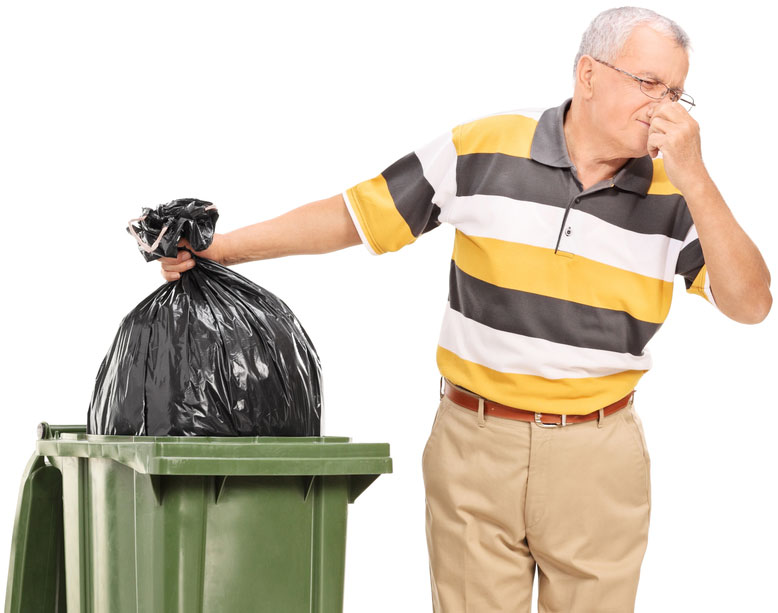Cleaning your trash bins may not be the most glamorous task, but it is an important one. Here are some reasons why it’s essential to clean your trash bins:
Prevent Bad Odors: The accumulation of garbage over time can create a foul smell in and around your trash bins. Regular cleaning helps to eliminate the bad odors and keeps your surroundings smelling fresh.

Keep Pests Away: Dirty trash bins can attract pests such as flies, rats, and cockroaches, which can spread diseases and cause health problems. Cleaning your bins regularly helps to keep pests away and maintain a hygienic environment.
Avoid Bacteria Growth: Trash bins are a breeding ground for bacteria, which can cause diseases if left unchecked. Cleaning your bins with a disinfectant solution helps to kill the bacteria and keep you and your family safe.
Extend the Life of Your Bins: Regular cleaning of your bins helps to prevent them from deteriorating due to the buildup of dirt and grime. This extends the life of your bins and saves you money in the long run.
Maintain a Clean and Tidy Environment: A clean and tidy environment is essential for your overall well-being. Regular cleaning of your trash bins helps to maintain a clean and hygienic environment, which is good for your health and well-being.
Types of bacteria found in trash bins
Several types of bacteria can be found in trash cans, including salmonella, e. coli, listeria, and others. Salmonella can be found in raw eggs, poultry, and unpasteurized milk, and can cause diarrhea, abdominal cramps, and fever if ingested or touched without washing hands properly. E. coli can be avoided by regularly cleaning trash cans with an antibacterial agent. Listeria can be found in deli meats and unpasteurized dairy products, and can cause invasive listeriosis if ingested. Additionally, bacteria can thrive in trash cans if they contain infected items, such as raw meat or eggs.
What are the health risks of salmonella, e. coli and listeria bacteria’s?
According to the Centers for Disease Control and Prevention (CDC), being exposed to Salmonella, E. coli, Listeria, or other bacteria or viruses in food can cause foodborne illnesses. These illnesses can range from mild to severe, and in some cases, can even be life-threatening. Symptoms of these illnesses can include diarrhea, fever, and stomach cramps, and may appear within 8 to 72 hours after exposure. Most healthy people recover within a few days to a week without specific treatment, but in some cases, diarrhea can cause severe dehydration and requires prompt medical attention.
Salmonella is a type of bacteria that can be found in a variety of foods, including chicken, beef, pork, eggs, fruits, vegetables, and even processed foods. Some people are more likely to get an infection and serious illness. Salmonella can cause salmonellosis, typhoid fever, and paratyphoid fever.
E. coli is a type of bacteria that is commonly found in the intestines of people and animals. Some strains of E. coli can cause illness, and can be found in undercooked beef, unpasteurized milk, and contaminated produce.
Listeria is a type of bacteria that can be found in soil, water, and some animals, and can contaminate food during processing or preparation. Listeria can cause listeriosis, which can be particularly dangerous for pregnant women, older adults, and people with weakened immune systems. Listeriosis can cause fever, muscle aches, and gastrointestinal symptoms, and can lead to severe illness, including meningitis and sepsis.
In summary, the risks of being exposed to Salmonella, E. coli, and Listeria include foodborne illnesses with symptoms that can range from mild to severe, and can even be life-threatening in some cases. It is important to take steps to prevent infection, such as following food safety guidelines for cleaning, handling, cooking, and storing food, and avoiding high-risk foods like undercooked meat, unpasteurized dairy products, and raw or contaminated produce.
What types of bugs are found in unclean trash bins?
Trash cans are a common location for various types of pests and bugs to live in. Some of the common bugs that can be found in trash cans include cockroaches, maggots, flies, fruit flies, and houseflies. It’s important to keep trash cans clean and tightly sealed to prevent these bugs from entering and living inside.
What types of animals are attracted to unclean trash bins?
Wild animals such as raccoons, squirrels, opossums, rats, skunks, bears and others are attracted to garbage bins. The reason for this is that they are drawn to the smell of food and enter unsecured trash receptacles in the hope of finding something to eat. You don’t want to attract these animals to your home and have them coming back every night to check for a meal. While they are all able to cause problems, raccoons, rats and bears are the biggest nuisances. Raccoons can cause considerable damage to homes and gardens and are also known to contract rabies. Raccoons are curious and will explore, ending up in places they should not be and potentially causing damage. Rats are probably the worst problem and can cause significant damage to structures by gnawing on wood, pipes, and electrical wires. They breed like crazy, so don’t let them get started. Bears, of course, are the greatest danger to people.
Give us a call today!
It’s clear that dirty trash bins create an unsafe environment where bugs, bacteria, and rodents can thrive. These types of pests can spread to your backyard and home and this type of company is not welcome and can create a health hazard for you and your family. At Slime Busters, we take this seriously and want you and your family to enjoy a clean environment, safe environment.
